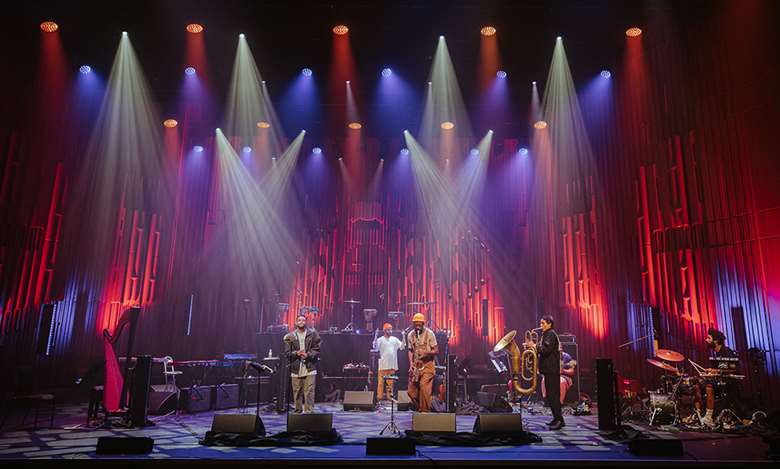Speakers Corner Quartet Blesses the Barbican With a Powerful Night of Jazz and Poetry
Christine Hannigan
Monday, November 8, 2021
The long-running spoken word-meets-jazz collective dazzles with a talent-packed line-up including Shabaka Hutchings, Oren Marshall and Kae Tempest


Register now to continue reading

Thank you for visiting Jazzwise.co.uk. Sign up for a free account today to enjoy the following benefits:
- Free access to 3 subscriber-only articles per month
- Unlimited access to our news, live reviews and artist pages
- Free email newsletter